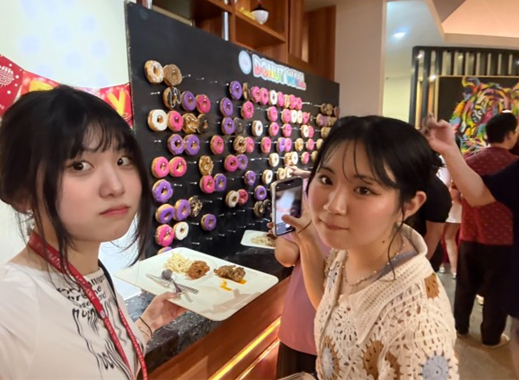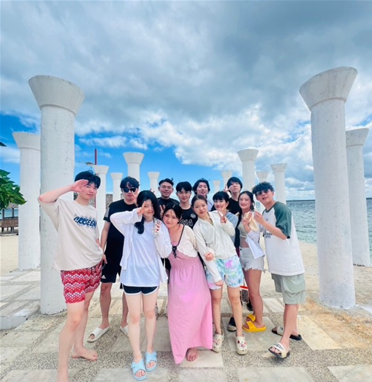[MACTAN] JAPANESE STUDENT REVIEW
페이지 정보
Writer CIA ADMIN Writing Date25-09-18 09:38 View 22 Comment 0관련링크
본문
I joined CIA to achieve the required score for my university’s exchange program in Australia. CIA offers various courses tailored to different learning goals, and students can switch courses if needed. Many of my friends, including myself, changed courses midway. This flexibility is one of CIA’s biggest advantages, allowing students to adjust their learning based on their progress and objectives.
I took the IELTS course, which had weekly tests. While it was challenging, it allowed me to frequently assess my progress. Regular testing helped me identify my strengths and weaknesses, making it easier to plan my studies. The classes thoroughly explained IELTS rules and concepts, helping me understand the exam’s structure. Instead of just solving problems, teachers explained the reasoning behind answers and the scoring criteria. This made it clear how to improve my score, which I found very helpful. Additionally, since IELTS requires proficiency in all four skills—reading, writing, listening, and speaking—the course provided balanced practice in each area. This comprehensive approach helped me become more confident in using English in real-life situations.
The teachers were friendly and patient. Even when I didn’t understand something in class, they kindly explained it again. Before studying abroad, I recommend learning phrases like “What does this mean?” and “Could you say that again?” to make communication smoother. Since there were many one-on-one lessons, the close interaction with teachers made asking questions easy. This was one of the reasons I felt choosing the Philippines for studying English was a great decision. In addition, the group classes provided opportunities to discuss different topics, improving my ability to express my thoughts in English.
Beyond improving my English, making international friends was one of the biggest benefits of this experience. CIA had many students from Korea, Taiwan, and Japan. At first, I was worried about language barriers, but surprisingly, many of us knew a little of each other’s languages. Teaching and learning simple phrases in different languages helped us bond quickly. For example, my Korean friends taught me basic Korean phrases, and in return, I taught them Japanese. Discussing cultural differences in English was also fun and a great way to practice the language. I realized that even though we came from different backgrounds, we shared many common interests, such as music, food, and travel.
On weekends, we enjoyed various activities, including island hopping, visiting historical sites, and swimming with whale sharks. Cebu’s beaches were incredibly beautiful, and I had experiences that I could never have in Japan. Trying marine sports and local food gave me a deeper understanding of different cultures beyond just language learning. Since it was a tropical country, I expected to get a tan, but surprisingly, I didn’t get sunburned as much as I thought.
One downside was that students graduated every week, which meant constantly saying goodbye to friends. However, I also made new friends frequently, and thanks to them, I now have more countries I want to visit in the future. This study abroad experience not only improved my English skills but also broadened my perspective and deepened my appreciation for cultural exchange. I feel that this journey has helped me grow as a person, and I am grateful for all the memories I made.



Comment List
No Comment
